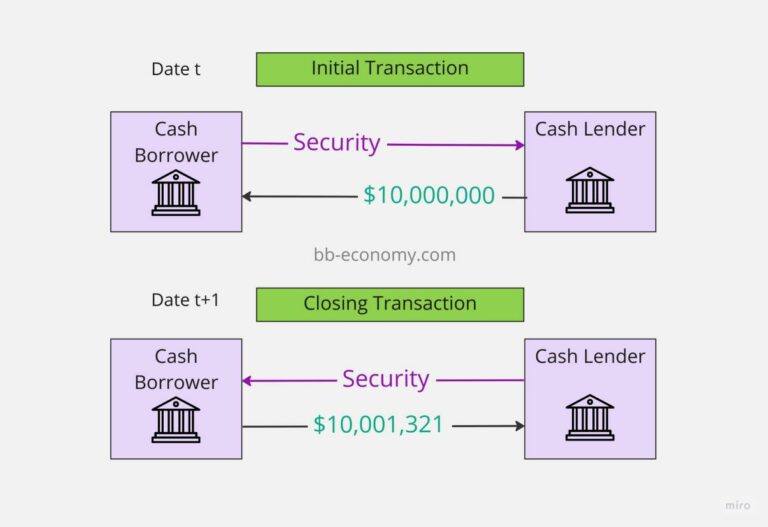Rental Trucks For Towing: Your Comprehensive Guide to Hauling with Confidence
Rental Trucks For Towing: Your Comprehensive Guide to Hauling with Confidence typestruckssale.com
Towing can be a daunting task, whether you’re relocating across the country, transporting a cherished classic car, moving heavy equipment, or simply taking your recreational vehicle to its next adventure. For many, owning a heavy-duty pickup truck or a commercial hauling vehicle isn’t a practical or economical option. This is where rental trucks for towing become an invaluable resource. They offer a flexible, cost-effective, and readily accessible solution for individuals and businesses alike to tackle their towing needs without the significant investment of ownership.
Rental trucks designed for towing are purpose-built vehicles equipped with the necessary components – robust engines, strong chassis, appropriate hitches, and often integrated braking systems – to safely pull various types of trailers. This comprehensive guide will delve into everything you need to know about utilizing rental trucks for your towing requirements, ensuring a safe, efficient, and successful haul.
Rental Trucks For Towing: Your Comprehensive Guide to Hauling with Confidence
Why Choose a Rental Truck for Towing?
Opting for a rental truck for your towing needs presents a myriad of advantages that make it a compelling choice over purchasing a dedicated vehicle or relying on less suitable alternatives.
- Cost-Effectiveness: The most significant benefit is avoiding the substantial upfront cost of buying a towing-capable truck. Beyond the purchase price, you save on insurance, registration, maintenance, repairs, and depreciation. You only pay for the truck when you need it.
- Accessibility and Availability: Major rental companies like U-Haul, Penske, Budget Truck Rental, and Enterprise Truck Rental have extensive fleets and locations nationwide, making it relatively easy to find a suitable vehicle close to your starting point.
- Variety of Options: Rental fleets typically offer a range of truck sizes and capacities, from smaller pickup trucks to large box trucks with integrated towing packages. This allows you to select a vehicle perfectly matched to the weight and type of your load, preventing overspending on unnecessary capacity or, more importantly, under-equipping for a dangerous tow.
- Professional Maintenance: Rental trucks are part of a professionally maintained fleet, meaning they regularly undergo inspections and servicing. This reduces the risk of mechanical breakdowns during your journey, offering greater peace of mind.
- Flexibility for Infrequent Needs: If you only need to tow occasionally – perhaps once a year for a family vacation, a one-time move, or an infrequent equipment transport – renting is far more practical than committing to ownership.

Understanding Towing Capacity and Vehicle Matching
The absolute most critical aspect of safe and legal towing is understanding and adhering to towing capacities. Failing to do so can lead to dangerous driving conditions, severe mechanical damage to the vehicle, and hefty fines.
- Gross Vehicle Weight Rating (GVWR): The maximum operating weight of the truck itself, including its chassis, engine, accessories, fuel, driver, passengers, and cargo.
- Gross Trailer Weight (GTW): The total weight of the trailer and its contents. This is the figure you primarily need to be concerned with for towing capacity. Always weigh your loaded trailer if possible, or make a very generous estimate.
- Tongue Weight (TW): The downward force exerted by the trailer’s tongue on the hitch ball of the towing vehicle. This should typically be 10-15% of the GTW for conventional towing. Too little can cause swaying; too much can overload the truck’s rear axle.
- Gross Combined Weight Rating (GCWR): The maximum allowable weight of the fully loaded truck and the fully loaded trailer combined. This is the ultimate limit you must not exceed.
How to Determine Your Needs:
- Weigh Your Load: The most accurate way is to take your loaded trailer to a public scale (often found at truck stops or landfills). If not possible, sum the dry weight of the trailer plus the estimated weight of all its contents. Err on the side of overestimation.
- Research Truck Capacity: Once you know your GTW, research rental trucks that explicitly state a towing capacity exceeding your GTW, ideally with a comfortable margin (e.g., 20-25% buffer). Rental companies will list the specific towing capacity for each truck model.
- Check Hitch and Wiring: Ensure the rental truck has the correct class of hitch (e.g., Class III for up to 8,000 lbs, Class IV for up to 10,000 lbs, Class V for over 10,000 lbs) and the appropriate electrical connector (4-pin for basic lights, 7-pin for lights, electric brakes, and auxiliary power).
Types of Rental Trucks Suitable for Towing
Rental companies offer various vehicle types that can be equipped for towing, each with specific advantages:
- Pickup Trucks:
- Common Use: Ideal for towing smaller boats, utility trailers, car dollies, or light recreational vehicles.
- Availability: Enterprise Truck Rental and some local rental agencies specialize in pickup truck rentals.
- Features: Often come with factory-installed hitches and wiring. Larger models (e.g., 3/4-ton or 1-ton equivalents) offer higher towing capacities and can handle heavier loads, though these are less common in standard consumer rental fleets.
- Box Trucks with Towing Packages:
- Common Use: The most popular choice for movers who also need to tow a car or a small utility trailer. Companies like U-Haul, Penske, and Budget are known for these.
- Availability: Widely available in various sizes (e.g., 10ft, 15ft, 20ft, 26ft).
- Features: Many box trucks, especially 15ft and larger, come with a factory-installed receiver hitch and a 4-pin or 7-pin wiring harness. This allows you to transport your household goods in the box while simultaneously towing your car on a dolly or car carrier.
- Cargo Vans:
- Common Use: Suitable for very light towing needs, similar to smaller pickup trucks. Less common for dedicated heavy towing.
- Features: Some larger cargo vans may have a Class II or III hitch, but their towing capacity is generally lower than a dedicated truck.
Key Features to Look For:
- Trailer Hitch: Confirm the type and class of hitch (e.g., 2-inch receiver, Class III/IV/V).
- Trailer Wiring Harness: Essential for trailer lights. A 4-pin connector handles basic lights (running, turn, brake). A 7-pin connector adds electric brake control and sometimes auxiliary power for charging trailer batteries.
- Trailer Brake Controller: For heavier trailers (typically over 2,000-3,000 lbs, but check state laws), an electric brake controller is crucial for safe stopping. Some rental trucks may have an integrated controller; if not, ask about portable units or if you can install your own plug-and-play unit.
The Rental Process: Step-by-Step Guide
Renting a truck for towing is straightforward, but careful planning is key.
-
Assess Your Needs Accurately:
- What exactly are you towing (car, boat, furniture, equipment)?
- What is the total weight of the loaded trailer?
- What type of hitch and wiring does your trailer require?
- How far are you traveling?
- Do you need space in the truck itself for cargo?
-
Research Rental Companies and Compare:
- U-Haul: Known for self-moving, extensive network, offers box trucks with towing capabilities, and often rents car dollies and auto transports.
- Penske Truck Rental: Generally newer fleet, often preferred for longer hauls, good customer service, offers various sizes of box trucks with towing.
- Budget Truck Rental: Competitive pricing, good for one-way rentals, offers box trucks with towing.
- Enterprise Truck Rental: Focuses more on commercial and larger pickup/stake truck rentals, good for heavier-duty towing without the cargo box.
- Compare prices, availability, specific truck models, mileage fees, and insurance options.
-
Make a Reservation (Well in Advance):
- Booking early, especially during peak moving seasons (summer, end of month), is crucial to secure the right truck.
- Clearly state that you intend to use the truck for towing and provide details about what you’ll be pulling. This ensures they provide a truck equipped with the necessary hitch and wiring.
- Confirm the pick-up and drop-off locations and times.
-
Pre-Rental Inspection:
- Before driving off, thoroughly inspect the truck. Check for existing dents, scratches, and damage, and ensure they are noted on your rental agreement.
- Verify the hitch receiver is clear and functional.
- Test the trailer wiring (if you have your trailer or can borrow a light tester).
- Check tire pressure on the truck.
- Familiarize yourself with the truck’s controls, especially if it’s a larger vehicle than you’re used to.
-
Understand the Rental Agreement:
- Read the fine print! Pay attention to:
- Mileage Limits and Fees: Some rentals include unlimited miles; others charge per mile after a certain limit.
- Fuel Policy: Is it full-to-full, or do you pay for what you use?
- Insurance Options: Your personal auto insurance may cover liability, but often won’t cover damage to the rental truck itself. Consider the rental company’s damage waiver.
- Return Policy: Where and when must the truck be returned? Are there late fees?
- Towing Specific Clauses: Any restrictions or special requirements related to towing.
- Read the fine print! Pay attention to:
Essential Towing Safety Tips
Safe towing requires diligence and a respect for the physics involved.
-
Pre-Trip Checklist:
- Hitch Connection: Ensure the hitch ball is correctly seated in the coupler and the coupler latch is securely closed and pinned.
- Safety Chains: Cross the safety chains under the trailer tongue and attach them to the truck’s frame. They are a backup if the hitch fails.
- Trailer Lights: Connect the wiring harness and test all lights (running lights, brake lights, turn signals).
- Tires: Check tire pressure on both the truck and the trailer, including the spare.
- Load Distribution: Ensure the trailer is loaded correctly, with about 60% of the weight forward of the axle(s) and 10-15% tongue weight.
- Brake Controller: If your trailer has electric brakes, ensure the brake controller is properly connected and functioning.
-
Driving Techniques:
- Slow Down: Reduce your speed significantly. Towing adds weight and changes handling characteristics.
- Increase Following Distance: You’ll need much more room to stop. Double or triple your normal following distance.
- Wider Turns: Trailers cut corners. Make wider turns to avoid hitting curbs or other obstacles.
- Gentle Inputs: Accelerate and brake smoothly and gradually to avoid jerking the trailer or losing control.
- Anticipate: Look far ahead for traffic changes, hills, and turns.
- Hills and Grades: Downshift when going uphill to maintain power and prevent overheating. Downshift when going downhill to use engine braking and save your service brakes.
- Mirror Usage: Use extended mirrors if necessary to see past your trailer.
- Sway Control: If you experience trailer sway, gently apply the trailer brakes (if you have a controller) and gradually reduce speed. Do NOT hit the truck brakes hard.
-
Weather Conditions: Be extra cautious in wind, rain, snow, or ice. Strong crosswinds can significantly affect trailer stability.
-
Frequent Checks: Periodically pull over safely to check your hitch connection, tire temperatures, and load security.
Potential Challenges and Solutions
While rental trucks offer convenience, be aware of common challenges:
- Underestimating Weight/Capacity:
- Solution: Always weigh your loaded trailer. When in doubt, rent a larger truck than you think you need. It’s better to have too much capacity than not enough.
- Incompatible Hitches/Wiring:
- Solution: Double-check your trailer’s hitch type (ball size) and wiring connector (4-pin vs. 7-pin) before renting. Most rental companies have common ball sizes, but you might need an adapter for the wiring, which can often be purchased at auto parts stores or even the rental location.
- Lack of Trailer Brake Controller:
- Solution: For trailers over 2,000-3,000 lbs (check your state’s laws), a brake controller is essential. Confirm if the rental truck has an integrated one. If not, inquire about portable units or consider a wireless brake controller that plugs into your 7-pin connector.
- Hidden Costs:
- Solution: Thoroughly read the rental agreement. Clarify mileage fees, fuel policies, insurance costs, and any potential charges for late returns or additional equipment.
- Availability Issues:
- Solution: Book your truck well in advance, especially during peak moving seasons or holidays. Be flexible with pick-up/drop-off times if possible. If your preferred truck isn’t available, consider alternative rental companies.
Rental Trucks For Towing: Estimated Pricing Guide
Please note: These prices are estimates and can vary significantly based on location, time of year, duration of rental, specific truck model, mileage, and chosen insurance options. Always get a direct quote from the rental company.
| Category | Example Truck Type | Estimated Daily Rate | Estimated Mileage Fee | Estimated Insurance (Damage Waiver) | Additional Equipment (Approx. Daily) | Notes |
|---|---|---|---|---|---|---|
| Light Duty Towing | Pickup Truck (1/2-ton equiv.) | $70 – $120 | $0.29 – $0.79/mile | $20 – $40 | Hitch Ball: $5-10 | Good for small utility trailers, boat trailers, car dollies. |
| Medium Duty Towing | 15ft Box Truck | $30 – $60 | $0.59 – $0.99/mile | $30 – $60 | Car Dolly: $40-60; Auto Transport: $60-80 | Popular for moving household goods + towing a car. |
| Heavy Duty Towing | 20ft/26ft Box Truck | $40 – $80 | $0.69 – $1.09/mile | $40 – $70 | Car Dolly: $40-60; Auto Transport: $60-80 | Higher towing capacity, more cargo space. |
| Insurance Options | Supplemental Liability, etc. | N/A | N/A | $15 – $40 (additional) | Moving Blankets: $5-10/dozen | Check your personal auto policy for existing coverage. |
| Fuel | All Trucks | N/A | N/A | N/A | N/A | Not included in rental price. Expect to return with same fuel level. |
| One-Way Rentals | All Trucks | Higher base rates | Included or separate | Standard | N/A | Often include more miles or set mileage limits. |
Note: Some rental companies offer packages that bundle mileage and insurance, potentially offering better value for longer trips.
Frequently Asked Questions (FAQ)
Q1: Do I need a special license to tow with a rental truck?
A1: Generally, no, for non-commercial towing within typical weight limits (under 26,001 lbs GVWR or GCWR). A standard Class D driver’s license is usually sufficient. However, always check your specific state’s Department of Motor Vehicles (DMV) regulations, as rules can vary, especially for very heavy loads or commercial purposes.
Q2: Can I rent just a truck for towing, or do I have to rent a trailer from them too?
A2: You can usually rent just the truck if it has a towing package. Rental companies like U-Haul, Penske, and Budget often specialize in both trucks and trailers (like car dollies and auto transports), making it convenient to rent both from the same place. Enterprise Truck Rental typically focuses on truck rentals only.
Q3: What kind of insurance do I need when towing with a rental truck?
A3: Your personal auto insurance policy may extend liability coverage to the rental truck, but it often does not cover damage to the rental truck itself. It’s highly recommended to purchase the rental company’s damage waiver or confirm with your personal insurance provider what coverage they offer for rental vehicles, especially when towing.
Q4: How do I know what size rental truck I need for towing?
A4: The primary factor is the total weight of your loaded trailer. Find out your Gross Trailer Weight (GTW). Then, select a rental truck whose advertised towing capacity comfortably exceeds your GTW. Also, consider if you need cargo space in the truck itself for belongings.
Q5: Can I tow a car with a rental box truck?
A5: Yes, many box trucks from U-Haul, Penske, and Budget are equipped with towing packages (hitch and wiring) specifically for this purpose. You would typically rent a car dolly (for front-wheel drive cars) or an auto transport trailer (for all-wheel or four-wheel drive, or larger vehicles) from the same company. Ensure the car’s weight is within the truck’s towing capacity.
Q6: Do rental trucks come with a trailer brake controller?
A6: Some larger rental trucks, especially those designed for heavier towing or commercial applications, may have an integrated trailer brake controller. However, many standard consumer-grade rental box trucks and pickups may not. It’s crucial to confirm this when booking, especially if your trailer has electric brakes (which are required for heavier trailers). If not, you may need to purchase or rent a portable, plug-and-play brake controller.
Conclusion
Rental trucks for towing provide an indispensable service, democratizing access to heavy-duty hauling capabilities without the burdens of ownership. By understanding your specific towing needs, carefully selecting the right vehicle, meticulously adhering to safety guidelines, and being aware of potential challenges, you can transform a potentially complex task into a manageable and successful endeavor. Whether it’s a cross-country move or transporting specialized equipment, planning, preparation, and a commitment to safety will ensure your towing experience with a rental truck is confident, efficient, and secure.

